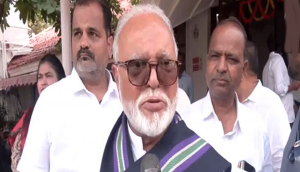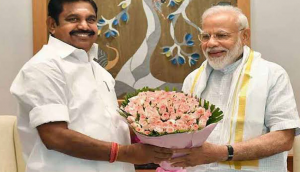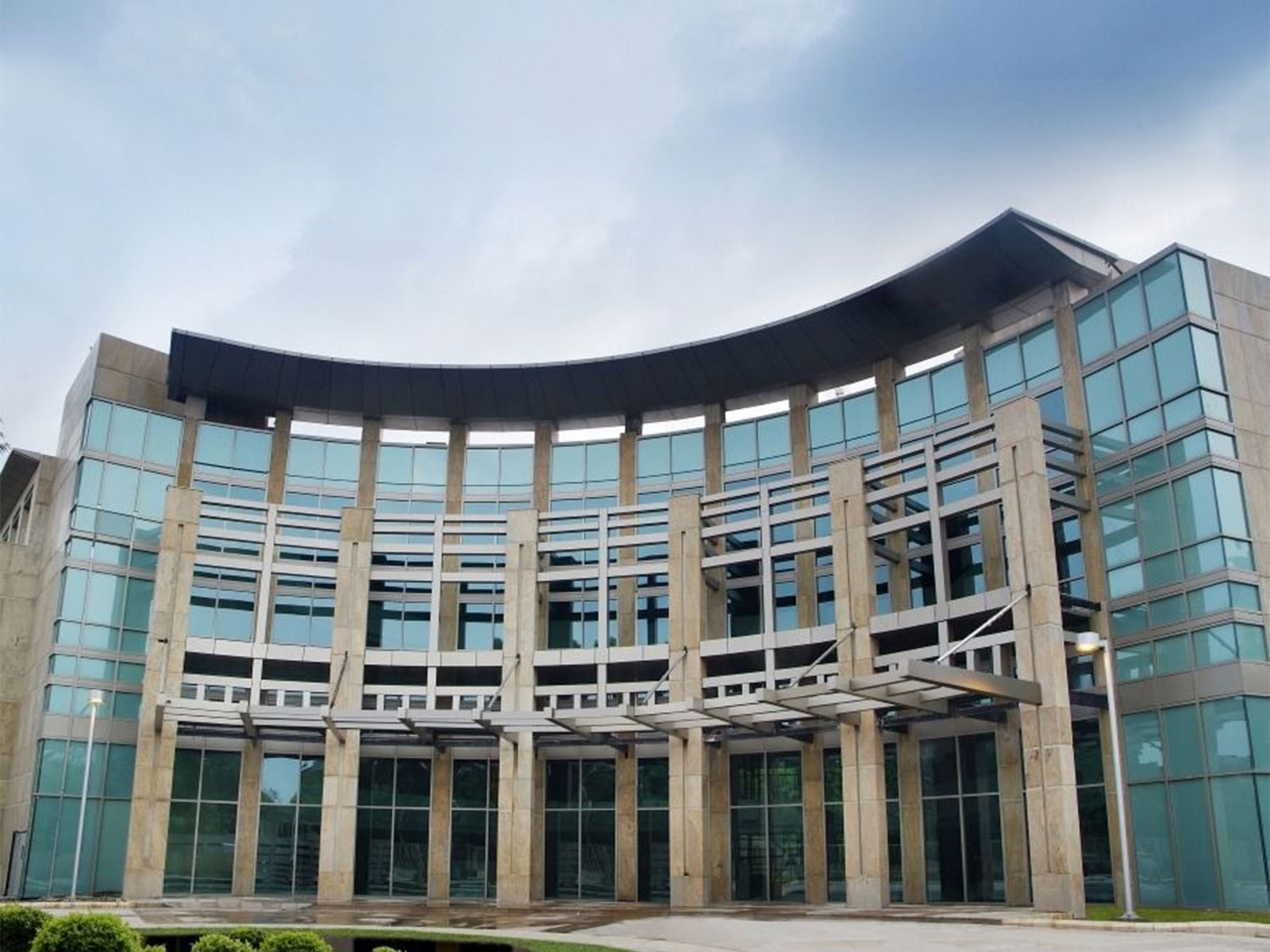Gujarat: Riots & cow slaughter law set the tone for communally charged polls

One thing is clear: the BJP will be fighting the Gujarat Assembly elections on a Hindutva plank. Take three developments for instance – the passage of a legislation raising the sentence for cow slaughter, the recent communal violence in Patan and the Virat Hindu Sammelan organised by the Vishwa Hindu Parishad.
It appears that Gujarat, often called the laboratory of Hindutva, is headed for a communal polarisation.
Action in the Assembly
The Vijay Rupani-led state government recently passed the Gujarat Animal Preservation (amendment) Bill 2017 which raises the maximum jail sentence for cow slaughter from the current 3-7 years to life sentence.
The new law also carries a provision of fine of up to Rs 5 lakh but not less than Rs 1 lakh for the crime. The transportation, selling or stocking of beef would draw an imprisonment of up to ten years and not less than five years besides a fine up to Rs 5 lakh. The offences under the Act would be cognisable and not bailable. The new law also prohibits transportation of bovines between 7 pm and 5 am even by legal permit holders.
There are many interesting aspects about the manner in which this Bill was passed in the state Assembly on Friday. Observers point out that once again the government chose to pass the Bill on the last day of the Assembly in the absence of the Opposition. Congress members were suspended for “creating a ruckus” earlier in the day over BJP president Amit Shah's barbs at them in his speech the previous day.
Shah is an MLA from Naranpura constituency in Ahmedabad. While the Opposition was absent at the time the Bill was passed, the visitor's gallery was packed with saffron clad sadhus.
Secondly, the government made use of a provision in the rule book to add the clause about life imprisonment at the last moment. Sources said the copy that had been circulated only spoke of up to 10 years imprisonment. The inclusion of life imprisonment left everyone dumbstruck.
Interestingly, observers point out that the law in Gujarat remains silent on deaths of cows by the dozens in ‘Gaushalas’ soon after munching toxic grass set free by industrial units which often clear the vegetation in the areas adjoining their chemical factories.
No one has ever been prosecuted for the deaths of a large number of cows after eating toxic grass. These deaths are treated as mere accidents like the deaths of Dalit manhole workers who die after inhaling poisonous gases.
The government also chose to table the Comptroller and Auditor General (CAG) reports on the last day. The day also saw the government tabling the MB Shah Commission report exonerating Narendra Modi when he was the chief minister of the corruption charges that had been leveled by the Congress party. There were reportedly 15 charges that had been leveled by the Congress that included a scam pertaining to the Gujarat State Petroleum Corporation (GSPC), a concession given to Tata Motors to the tune of Rs 33,000 crore, allotment of land to BJP leader Venkiah Naidu's company in Kutch and allotment of prime land to industrial houses near major cities.
The BJP MLAs in the house also passed a resolution condemning triple talaq and seeking reforms to protect Muslim women from the practice.
Veteran political observer RK Mishra says, “Passing of controversial Bills and resolutions on the last day in the Opposition's absence has become a norm in the state Assembly since Modi was the chief minister. since this leaves no scope for debate.”
He also questions the timing of the amendment to the cow slaughter Act saying that the Act has been in place right from early 1990s when Chimanbhai Patel was the chief minister. “ There is also an Act in place giving death penalty to those found guilty of manufacturing, selling and supplying hooch or spurious liquor which results in death. The government needs to be asked how many people have been convicted under it,” he said.
The said Act came into existence after the former Governor Kamla Beniwal gave her consent in 2011. Gujarat Assembly had reportedly passed 'The Bombay Prohibition (Amendment) Act' on July 28, 2009 after the state was rocked by a hooch tragedy claiming 136 lives in Ahmedabad, mostly in the slums of Odhav and Amraiwadi.
Communal polarisation
Observers point out that after the Uttar Pradesh election results, BJP and Sangh Parivar leaders have become very vocal on the Hindtva agenda. “Their speeches try to create a sense of Hindu persecution. They refer to the attack on the Jagannath Rath Yatra in the early 1990s and to don Abdul Lateef. Phrases like 'Hindu first' and 'Kar Sewa' have once again started doing the rounds in daily lives,” said a senior media person based in Ahmedabad.
The recent 'Virat Hindu Sammelan' addressed by VHP's international working president Pravin Togadia is an example of this pattern that is emerging. The posters and banners that were put up before the event reportedly read “Uttar Pradesh ma amari pran pyari gau mata ne nyay mali rahelo che. Toh Gujarat ma kyare? Uttar Pradesh ma qatalkhana bandh thayi rahya chhe. Toh Gujarat ma kyare? (Cows are getting justice in Uttar Pradesh, when will this happen in Gujarat. Slaughterhouses are being shut in Uttar Pradesh, when will this happen in Gujarat?).
In his address Togadia went on to seek a law for the disputed site at Ayodhya on the lines of the one for construction of Somnath temple after independence. Sources said that a mobile app 'HApp4Hindus' was announced at the event where Togadia declared the 'Hindu First' charter of demands.
He also called for abolition of polygamy and 'uniform population and marriage law' to control population explosion and wastage of taxpayer's money on welfare schemes. He also raised the issue of a fee waiver for Hindu kids children on the lines of the incentives given to children from minority communities.
This sammelan was preceded by a communal riot in Vadavali village in Patan district of North Gujarat. One person called Ibrahim Khan Belim was killed and several others were injured. Reports say that members of the Thakore community from Sunsar and adjoining villages had attacked the Muslim residents of Vajipara area of Vadavali last Saturday besides torching agricultural produce, vehicles and houses.
The riot was triggered by a trivial altercation between students from Hindu and Muslim communities. Since 2002 post Godhra riots there have been many such small scale riots in Gujarat. Though triggered by trivial matters, these led to a significant polarisation.
Social activists who visited the spot have pointed out in a fact finding report that on the given day, a large number of Muslim residents had gone to Kutch for participating in a fair at the mausoleum of Haji Pir. They said that Vadavali is a village where the two communities have existed peacefully. The attacks were carried out in waves by people from villages located as far as 10 km away.
Observers say that such instances along with vitriolic speeches from leaders will only increase in the run up to the polls that are expected to take place towards the end of the year.
First published: 1 April 2017, 18:34 IST






![BJP's Kapil Mishra recreates Shankar Mahadevan’s ‘Breathless’ song to highlight Delhi pollution [WATCH] BJP's Kapil Mishra recreates Shankar Mahadevan’s ‘Breathless’ song to highlight Delhi pollution [WATCH]](https://images.catchnews.com/upload/2022/11/03/kapil-mishra_240884_300x172.png)

![Anupam Kher shares pictures of his toned body on 67th birthday [MUST SEE] Anupam Kher shares pictures of his toned body on 67th birthday [MUST SEE]](https://images.catchnews.com/upload/2022/03/07/Anupam_kher_231145_300x172.jpg)






